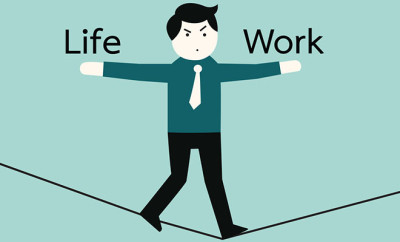
Exclusive Interview: Stephen Covey on his Morning Routine
“The key is not to prioritize what’s on your schedule, but to schedule your priorities.” – Stephen Covey
It’s such a thrill to share with you this interview with one of my heroes, author Stephen Covey of 7 Habits of Highly Effective People fame.
Covey, of course, is one of the inspirations of this site, and has informed all of my writings (including Zen To Done) that talk about getting important things done, not just everything on your to-do list.
Besides The 7 Habits of Highly Effective People, some of his other best-selling books (which I highly recommend) include First Things First, Principle Centered Leadership, The 7 Habits of Highly Effective Families, and his most recent book, The 8th Habit: From Effectiveness to Greatness.
He’s also started up his own website, Stephen R. Covey: The Community, which is a community of his readers, with exclusive articles, video and audio, as well as forums, blogs, and tools for those trying to live the 7 habits.
The 7 Habits include being proactive, beginning with the end in mind, putting first things first, thinking win/win, seeking first to understand, synergizing, and sharpening the saw. His 8th habit boils down to “Find your voice and inspire others to find theirs.” Indispensable reading.
I was able to connect with Mr. Covey through email, and in this interview I tried to keep the questions to a minimum (he’s a busy guy), avoid repeating too much of what’s already available in his books, get a little more personal, and give you guys (and myself) a little insight into someone who has found a way to live his life according to his principles.
I hope you enjoy this interview!
Zen Habits: For a lot of people your books are so full of mind-blowing and life-changing ideas, that they get overwhelmed. They want to start, but don’t know how to. What would be the best first step they can take to make a positive change?
Covey: Listen to your conscience regarding something that you simply know you should do, then start small on it—make a promise and keep it. Then move forward and make a little larger promise and keep it. Eventually you’ll discover that your sense of honor will become greater than your moods, and that will give you a level of confidence and excitement that you can move to other areas where you feel you need to make improvements or give service.
ZH: To give us some insight into your life, what is your typical morning routine on a work day, that incorporates some of your principles into your everyday life?
Covey: I make an effort every morning to win what I call the “private victory.” I work out on a stationary bike while I am studying the scriptures for at least 30 minutes. Then I swim in a home pool vigorously for 15 minutes, then I do yoga in a shallow part of the pool for 15 minutes. Then I go into my library and pray with a listening spirit, listening primarily to my conscience while I visualize the rest of my entire day, including important professional activities and key relationships with my loved ones, working associates and clients. I see myself living by correct principles and accomplishing worthy purposes. One of my favorite quotes is, “The greatest battles of life are fought out every day in the silent chambers of one’s own soul.” (David O. McKay) Much of this listening and visualizing work is very challenging, so I win the private victory when I have made my mind up and commit to live by correct principles and to serve worthy purposes.
ZH: Do you have any thoughts you can share about filtering out the noise in life (especially noise from technology) to focus on the things that are truly important. How can we be sure to see time-sensitive emails but not live in our inboxes?
Covey: I am fortunate to have a very helpful team that enables me to spend time doing things that are important but not necessarily urgent. This requires the development of a personal mission statement to give a larger context and also the determination of what is truly important but not necessarily urgent. People who have no such team need to also make these larger decisions so that they can cheerfully say No to that which is urgent but not important. Learn to use technology in such a way as to filter out that which you really know is important to you personally and professionally. Remember, technology is a great servant, but a terrible master.
ZH: What is your work setup? What tools do you use? What kind of computer and software are indispensable for you? How do you set things up to optimize your effectiveness?
Covey: I work with a complementary team, which means you build on your strengths and organize to make your weaknesses irrelevant. Modern technology is one of my weaknesses, but my associates make this weakness irrelevant because they are superb at it. I also find most meetings are a waste of time, because they are so ill-prepared and there’s little opportunity for true synergy in producing better solutions than what anyone originally thought of. So I work hard to only attend those meetings that have strategic importance and miss all kinds of other seemingly urgent meetings. I keep my phone number unlisted and rely on my associates to handle all voice mail, e-mail, faxes.
ZH: Besides your books, what other reading would you recommend as indispensable, including books, magazines, websites, or blogs? Do you read blogs?
Covey: I don’t read blogs but occasionally people tell me about what they contain, and I do take questions that come from blogs, like this one. My team and I also make occasional blog postings and will do so more and more in the future. I believe that the habit of constant reading of good books and scholarly periodicals and magazines in many disciplines is vital to give a larger perspective and to constantly sense the interdependent nature of life. I probably average 2 hours per day reading. I also am sent many books for endorsement purposes, which enables me to stay relevant in my own field, and I have people that help me decide which ones I should read and endorse.
ZH: Have you read Getting Things Done and The Secret? What are your thoughts on those two separate phenomena?
Covey: I have read these books and have enjoyed them and believe they contain elements of wisdom and practical suggestions. But for me and my world they are too simplistic and superficial.
Editor’s note: Credit is due to my blogging friends Andrew of Legal Andrew and David of LivSimpl for providing a couple of the interview questions. Thanks guys!
“We may be very busy, we may be very efficient, but we will also be truly effective only when we begin with the end in mind.” – Stephen Covey







